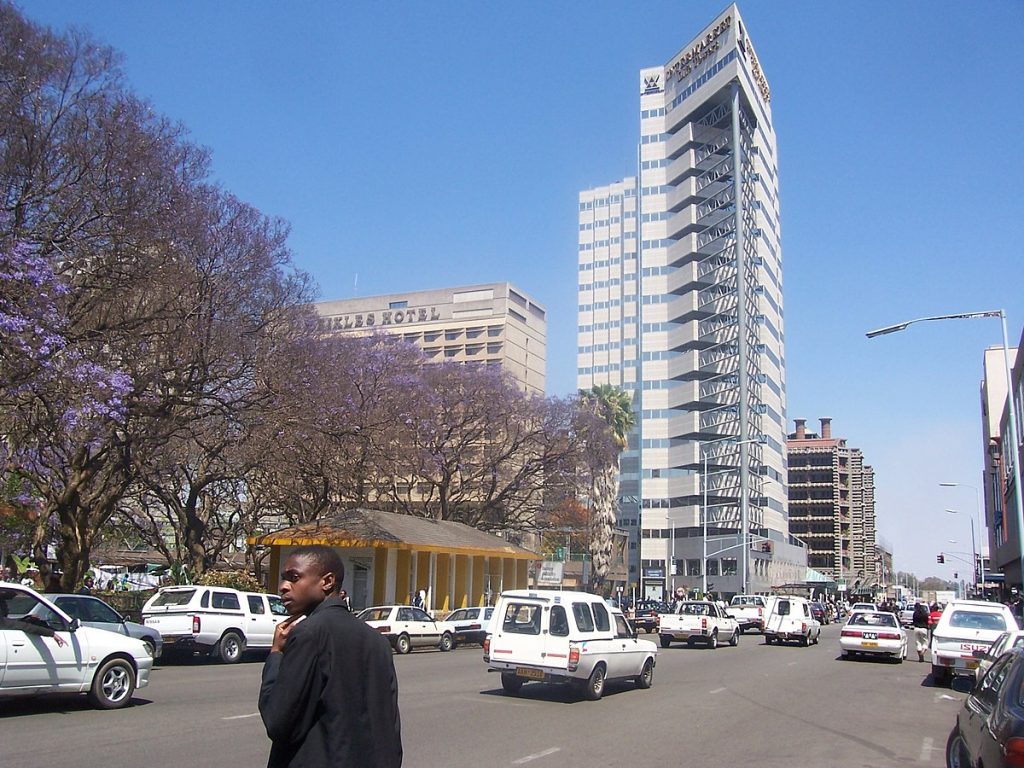Zimbabwe’s drive for economic growth and development has seen the government introduce various institutions to attract and regulate both domestic and foreign investments. At the forefront of this agenda is the Zimbabwe Investment and Development Agency (ZIDA), formed with the mandate to simplify the investment process, offer support to investors, and foster an economic environment conducive to long-term growth. This article offers a comprehensive look at how ZIDA operates in Zimbabwe, its core functions, and the ways in which it supports both new and existing ventures.
1. What Is ZIDA?
1.1 Historical Context
Prior to its establishment, Zimbabwe had multiple investment-related bodies—like the Zimbabwe Investment Authority (ZIA), the Special Economic Zones Authority, and the Joint Ventures Unit—often resulting in overlapping roles and bureaucratic hurdles. To streamline investment procedures, Parliament passed the ZIDA Act [Chapter 14:37] in 2020, consolidating these entities into one unified body: the Zimbabwe Investment and Development Agency (ZIDA).
1.2 Mandate and Purpose
ZIDA’s primary mission is to drive investment inflows and economic transformation by:
- Facilitating Investments: Acting as a one-stop shop for investor services, ensuring simpler registrations and licenses.
- Promoting Special Economic Zones (SEZs): Spearheading policies that incentivize local and foreign capital into dedicated industrial clusters.
- Advising Government: Providing insights into policy formulations that influence the investment landscape.
- Monitoring Compliance: Enforcing regulations tied to investments, ensuring legal adherence and fair dealings.
In simpler terms, ZIDA aims to remove bureaucratic red tape, unify procedures, and build investor confidence, thereby making Zimbabwe more competitive as an investment destination.
2. Key Functions of ZIDA
2.1 One-Stop Investment Services
Traditionally, investors seeking approval or licenses would shuttle between multiple governmental departments, wasting time and resources. ZIDA addresses this by:
- Centralizing Registrations: Investors can now lodge applications for investment licenses, business permits, or special approvals at a single point of contact.
- Coordinating Agencies: ZIDA liaises with ministries such as Finance, Mines, Industry, Agriculture, etc., coordinating each step of the investor’s journey so that they don’t navigate multiple offices independently.
- Dedicated Support: Trained officials within ZIDA guide investors, providing clarity on processes like land acquisition, tax incentives, or labor requirements.
2.2 Special Economic Zones (SEZs)
The concept of SEZs has become vital globally for attracting investments, offering incentives like reduced taxes, streamlined customs, and improved infrastructure. ZIDA plays a pivotal role in Zimbabwe’s SEZ strategy by:
- Identifying Zones: Working with relevant ministries to earmark strategic locations—such as industrial parks or export hubs.
- Policy and Incentive Design: Collaborating with government bodies to craft tax breaks, duty exemptions, or simplified import-export procedures, ensuring each zone appeals to targeted industries (e.g., manufacturing, agro-processing, IT).
- Project Facilitation: Assisting investors in these zones with securing land, utility services, and compliance documentation.
2.3 Investment Promotion and Facilitation
In an era where nations compete for foreign capital, ZIDA focuses on:
- Marketing Zimbabwe: Showcasing the country’s potential at international expos, bilateral forums, or roadshows, highlighting sectors with high returns (mining, agriculture, tourism, and more).
- Providing Market Intelligence: Publishing reports or guides on the business environment, trending sectors, or potential challenges, allowing investors to make data-informed decisions.
- Offering Investor Guarantees: Working to ensure fair compensation clauses, protection against expropriation, or transparent dispute resolution, thus boosting investor trust.
2.4 Policy Advocacy and Reforms
ZIDA doesn’t simply implement government policy—it also advises the government on needed reforms by:
- Reviewing Bottlenecks: Identifying legislative or administrative barriers affecting both local and foreign investors.
- Proposing Amendments: Suggesting policy changes (e.g., tax reforms, labor regulations) that promote competitiveness, reduce corruption, and secure property rights.
- Benchmarking: Comparing Zimbabwe’s investment climate with regional peers, keeping the government informed on best practices for attracting and retaining capital.
3. Steps to Invest Through ZIDA
Whether you’re an international corporation eyeing mining opportunities or a local entrepreneur expanding into manufacturing, here’s a snapshot of how to engage with ZIDA:
3.1 Market Research and Inquiry
- Initial Contact: Potential investors often start by reaching out to ZIDA’s inquiry desk—via email or in person—for information on sectors like agriculture, tourism, ICT, or energy.
- Project Scoping: ZIDA can provide sectoral reports, highlight special economic zone offerings, or connect you with relevant ministry officials for further clarity.
3.2 Registration and Licensing
- Application Submission: Once the investor’s plan is concrete, they fill out relevant forms (investment license, company registration details). ZIDA provides a consolidated checklist, so documents (e.g., business proposals, financial statements) meet Zimbabwe’s compliance needs.
- Review and Approval: ZIDA reviews the project’s viability, capital injection, potential job creation, and compliance with laws on land usage or environment. Depending on complexity, a license might be granted within specified timelines, typically a few weeks if all forms are in order.
3.3 Post-Investment Services
- Facilitation and Aftercare: ZIDA helps new ventures secure utility connections (electricity, water), clarifies local hiring rules, and occasionally arranges linkages with local suppliers or joint venture partners.
- Expansion or Relocation: For businesses thriving in one zone, ZIDA can coordinate expansions, additional licensing, or entry into new SEZ clusters, ensuring minimal administrative friction.
- Monitoring and Compliance: Periodically, ZIDA may require progress reports to confirm that the venture aligns with the original plan (like designated capital amounts, job creation targets).
4. Notable Sectors and Opportunities
4.1 Mining and Natural Resources
Zimbabwe’s mineral wealth—diamonds, gold, platinum—remains a major draw. Under ZIDA’s oversight:
- Reduced Bottlenecks: Investors in mining can navigate exploration licenses and environmental clearances more smoothly.
- Mining SEZs: Specialized zones might target value addition (e.g., cutting and polishing gems, manufacturing from mineral outputs), promising favorable tax regimes.
4.2 Agriculture and Agro-Processing
With fertile land and a push for food security, Zimbabwe’s agriculture offers:
- Contract Farming Incentives: For large-scale producers, ZIDA can facilitate farmland leases, irrigation projects, and guaranteed off-take agreements.
- Value Chain Development: Investors focusing on canning, fruit processing, or seed manufacturing can tap into local raw materials and enjoy SEZ benefits if they export surplus.
4.3 Manufacturing and Value Addition
The government’s value addition agenda is critical for diversifying exports beyond raw commodities. ZIDA encourages:
- Industrial Parks: Investors can set up factories or assembly lines within designated zones, leveraging improved infrastructure and potential tax holidays.
- Local Partnerships: ZIDA helps identify local subcontractors or suppliers, creating synergies that reduce import dependence and stimulate domestic employment.
4.4 Tourism and Hospitality
From Victoria Falls to untapped wilderness areas:
- Hotel and Resort Development: Investors benefit from tourism growth strategies, including licensing support, permissible land usage, and marketing collaborations.
- Event and Cultural Tourism: ZIDA’s promotional activities aim to broaden the scope of Zimbabwe’s tourism, meaning ventures in conference facilities or niche tourism experiences may find supportive policies.
5. Navigating Challenges and Risks
5.1 Understanding Local Regulations
Though ZIDA streamlines processes, Zimbabwe’s legal framework can be intricate. Potential investors should:
- Seek Legal Counsel: Local law firms can clarify land acquisition rules, shareholding restrictions, or relevant tax obligations (like capital gains).
- Stay Updated: Economic reforms occur periodically. Maintaining communication with ZIDA ensures timely awareness of new incentives or legislative changes.
5.2 Currency and Exchange Considerations
Zimbabwe’s currency environment has seen fluctuations, sometimes impacting:
- Repatriation of Profits: Work with local financial institutions and ZIDA to adhere to exchange-control regulations.
- Importing Capital Equipment: SEZ frameworks may grant duty exemptions or simplified foreign currency allocations for essential machinery or raw materials.
5.3 Political and Economic Stability
While Zimbabwe aims to boost investor confidence, external factors—like global commodity prices or domestic political shifts—can influence returns. Investors typically factor in:
- Diversified Approaches: If concentrating heavily in one sector (e.g., mining), a robust risk management plan helps mitigate price volatilities.
- Long-Term Partnerships: Government relationships, joint ventures with local firms, or participating in public-private partnerships (PPPs) can bolster project resilience.
6. Future Outlook for ZIDA
6.1 Institutional Strengthening
ZIDA is still evolving. Expect:
- Enhanced Digital Platforms: Online portals for licensing, investment tracking, and compliance monitoring, reducing in-person visits.
- Sector-Specific Desks: Specialized teams focusing on high-value areas (renewable energy, technology parks), offering tailored guidance and deeper policy knowledge.
6.2 Greater Regional Integration
Zimbabwe’s alignment with SADC (Southern African Development Community) and the African Continental Free Trade Area (AfCFTA) means cross-border trade could expand:
- Export Market Access: Investors setting up in Zimbabwe can leverage these trade blocs for preferential tariffs, scaling outputs beyond local consumption.
- Regional Partnerships: ZIDA might orchestrate joint initiatives with neighboring nations, facilitating multi-country investment corridors in tourism or manufacturing.
6.3 Policy Reforms and Incentives
As Zimbabwe intensifies its diversification, more incentives and policy support—like advanced tax breaks, R&D benefits, or extended SEZ coverage—are anticipated. ZIDA’s central role ensures that these expansions connect effectively with investor interests, further reinforcing the “ease of doing business” theme.
7. Conclusion
The Zimbabwe Investment and Development Agency (ZIDA) stands as a cornerstone in Zimbabwe’s push to refine its investment climate, championing transparent processes, reducing bureaucratic hurdles, and coordinating strategic projects. Whether you’re a foreign corporation evaluating mining prospects, a local agro-processor scaling production, or an export-oriented manufacturer aiming for SEZ advantages, ZIDA acts as a one-stop conduit linking you to the resources and clearances needed to thrive. In a country shaped by abundant natural resources, a rich agricultural heritage, and increasing impetus toward technology and service-based industries, understanding ZIDA’s operations can make or break your investment experience. By centralizing investor services, fostering SEZ developments, and leading reforms to align with global best practices, ZIDA ensures Zimbabwe remains a compelling destination for capital inflows. Balancing the nation’s economic priorities with investor-friendly frameworks, ZIDA plays a defining role in forging partnerships that benefit both the public and private sectors, ultimately driving Zimbabwe’s vision for broad-based, inclusive development




